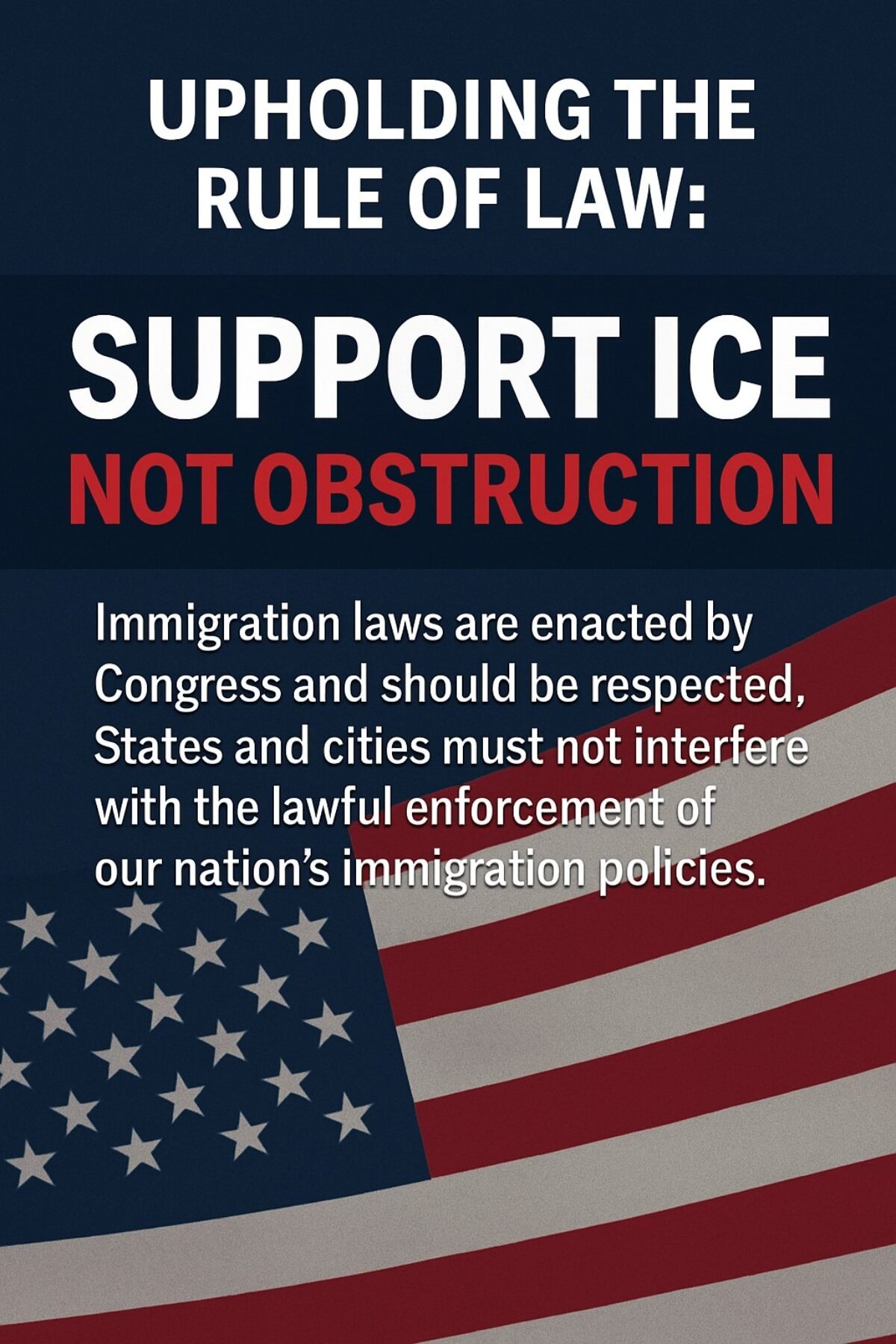UPHOLDING THE RULE OF LAW: WHY ICE DESERVES SUPPORT, NOT OBSTRUCTION
Across the United States, immigration enforcement has become one of the most divisive issues in modern politics. Yet at its core, the issue is simple: federal immigration laws exist, and it is the duty of Immigration and Customs Enforcement (ICE) to enforce them. Whether one agrees with the laws themselves or not, undermining their enforcement erodes the rule of law that underpins our entire system of government.
The Rise of Sanctuary States and Cities
In recent years, several states — including California, Colorado, Illinois, Massachusetts, New Mexico, Oregon, and Vermont — have adopted so-called “sanctuary” policies. These laws and directives restrict cooperation between local law enforcement and federal immigration authorities. Other states, such as Connecticut, New Jersey, New York, Rhode Island, Utah, and Washington, have followed suit with varying degrees of similar policies.
More than 300 U.S. cities have also declared themselves sanctuary jurisdictions. These include major metropolitan areas like New York City, Los Angeles, Chicago, Seattle, and San Francisco. Local officials often defend these policies as efforts to build trust with immigrant communities. However, critics argue that they undermine public safety by shielding individuals who have violated federal law from accountability.
The Problem with Political Interference
Sanctuary policies create confusion for law enforcement officers who are sworn to uphold the law. They send mixed messages — expecting officers to enforce state and local laws while ignoring federal ones. This politicization of law enforcement places police officers and ICE agents in an impossible position, where fulfilling their oath can lead to political backlash.
Governors and mayors who direct their agencies to withhold cooperation from ICE are not advancing justice; they are interfering with lawful federal operations. The U.S. Constitution establishes immigration enforcement as a federal responsibility. Local leaders may disagree with federal policy, but their proper course of action is to advocate for legislative reform — not to obstruct enforcement efforts.
ICE: Doing the Job Congress Gave Them
ICE officers don’t make immigration law; they enforce it. Their mission is to uphold the Immigration and Nationality Act (INA), which Congress passed and every president since has administered. These men and women risk their lives daily to protect communities from human trafficking, drug smuggling, and other criminal activity linked to unlawful immigration.
If elected officials disagree with ICE’s mandate, the solution lies in Washington, D.C. — through Congress. Lawmakers must debate and, if necessary, amend immigration laws. Until then, ICE should be supported in carrying out its lawful duties without interference from state or local politics.
Restoring Respect for Law and Order
America’s strength has always come from its respect for law and order. When elected officials choose which laws to follow and which to ignore, it sets a dangerous precedent. Enforcing our borders and immigration laws is not an act of cruelty — it is an act of sovereignty. The men and women of ICE deserve respect and cooperation, not obstruction, as they perform their difficult but necessary work.
In the end, our nation cannot afford a patchwork of conflicting laws and policies that weaken enforcement and confuse communities. It’s time to reaffirm a basic truth: laws are meant to be followed, and those tasked with enforcing them should be supported — not vilified.



